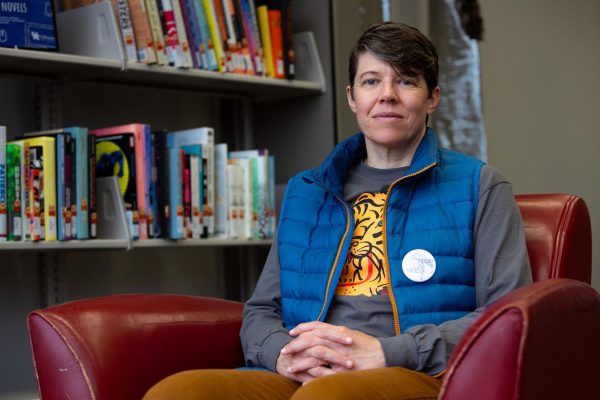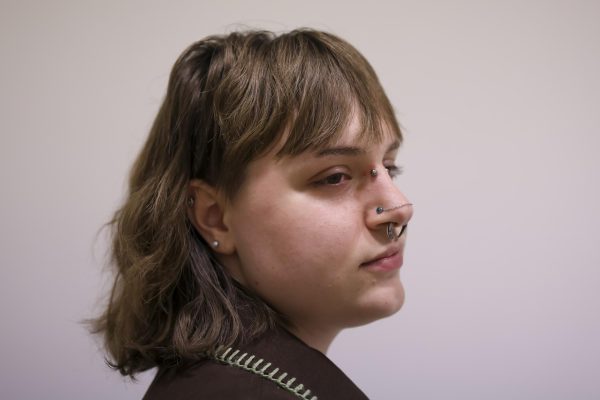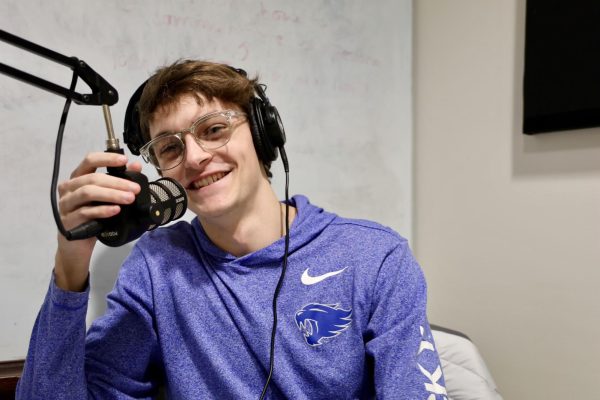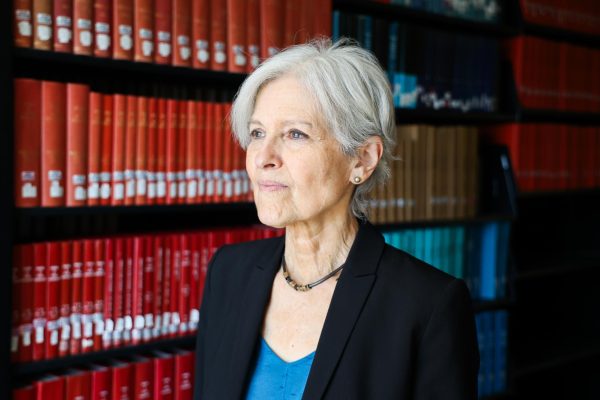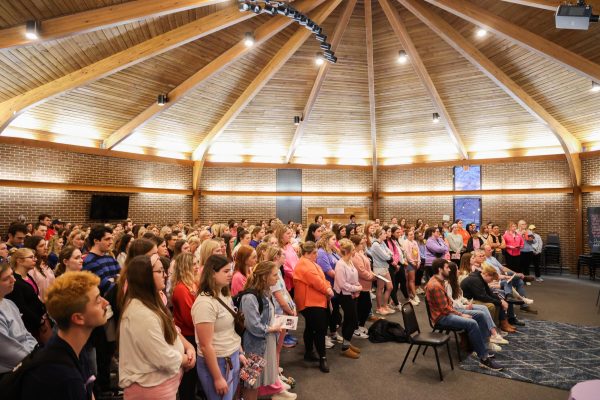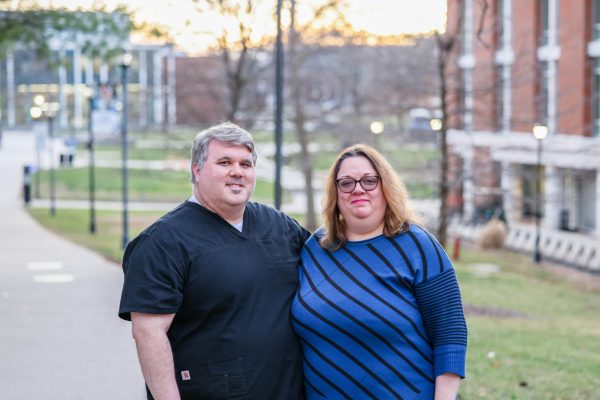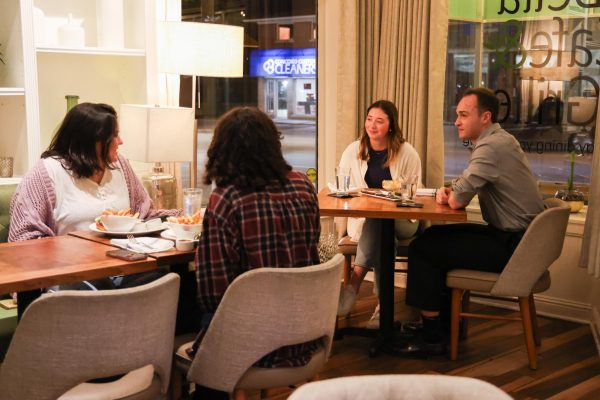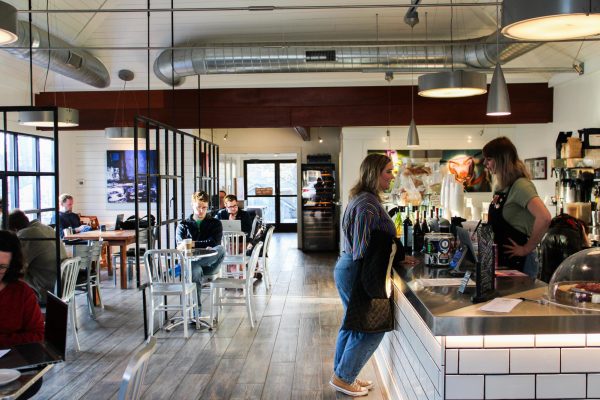MLK Center director recognizes struggles of minority students
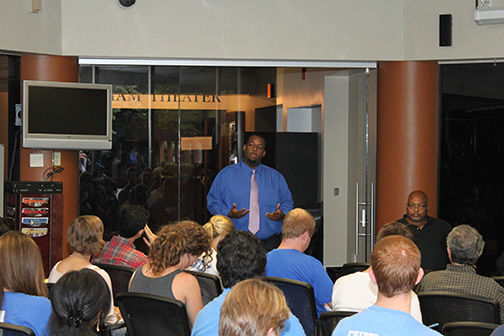
Kahlil Baker addresses UK Students in MLK Center. Photo taken from UKnow website.
August 28, 2016
Before he was at UK leading students on campus, Kahlil Baker, director of the Martin Luther King Center, was a 12-year-old boy from Bridgeport, Connecticut being lead by his mother: a single, black mother running for state representative.
“I remember saying to her I didn’t want her to win,” Baker said, for at 12 years of age, he understood the responsibility of working in government. “And she talked to me about the community, specifically the inner city and community of color, and she spoke of the importance of taking care of our community, and that’s what her role was.”
She was elected and this conversation stuck with Kahlil over the years, and it is how he found himself starting a career in social work. From undergraduate studies at Berea College to graduate studies at the University of Louisville, Baker quickly realized his place helping others. Starting off in the C.A.R.E.S office as a counselor at UK, Baker worked in the office for a few years before moving to the MLK Center and becoming director.
Whether it is students, the homeless community, chemically dependent teens, or vulnerable children Baker said support is needed and “I am in the career of helping people. I don’t have a set thing, a certain group of people I want to reach, a goal or a title. I’m doing what I’m doing until I get to the next thing.”
That spirit of going with the flow and heading wherever help is needed gives light to the relaxed nature of Baker. He considers himself a hip-hop fanatic and a lot of the vibes from the music he enjoys he also attempts to bring into his life: philosophy and work.
On the topic of his purpose on campus, Baker was reluctant to provide just one.
“As a ‘hip-hop head’ you often find yourself in conversations like ‘Who’s your top five?’ or ‘Who’s your top 3?’ What I always say to people when they ask me is, I’ll give you my top three, plus two. I can’t commit because each day is different.”
Being director of the MLK Center means Baker is not just responsible for what the campus sees the center do. He also has an unspoken responsibility for the students that come into the center looking for a safe space, specifically students of color on campus.
“There’s a different affinity that I have for students of color,” said Baker. “I can recognize what isn’t the same [for students of color].”
Representation is important, and Baker realizes this. On the other hand, Baker also feels he is here to be a leader for the rest of campus, to create space for dialogues on diversity. Baker has learned much about how young minds work when it comes to communication and getting people to MLK Center events. For the center, it is a constant competition with technology to stay relevant and new.
“You can’t just skate through the work we do at the King Center,” said Baker. “We have to be really intentional with what we want to do.”
This means checking off each detail when planning an event on campus. Baker looks at the conversation topics that will get the most buzz and the day of the week that would be best to hold an event; even the exact time is important. Baker said there is a balance the MLK Center tries to find with the people they bring in to speak and the message the MLK Center wants portrayed, and this is a big challenge when looking for speakers.
But no matter what challenges Baker comes to face on campus, he always goes back to the thought of his mother. He considers her his biggest role-model.
“While I was working on my master’s in social work at U of L, my mother, completely separate from me was getting her degree in social work at the University of Alabama at Birmingham,” Baker said. “Still to this day, we inspire each other.”












































































































































